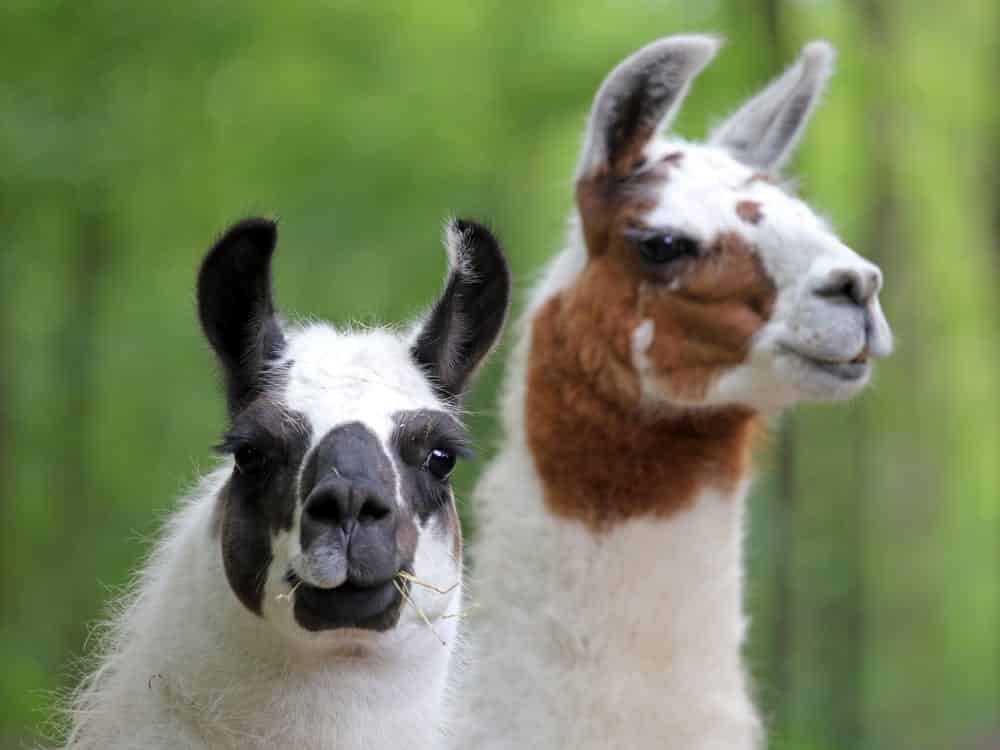Winter is a llama who lives on a farm in Ghent, Belgium — and she may be a vital figure in the fight against the novel coronavirus. Llamas have long been used for antibody research, and they have been integral in identifying potential therapies for viruses such as HIV and influenza.
There is nothing particularly distinctive about Winter. She was previously chosen for a series of virus studies involving severe acute respiratory syndrome (SARS) and Middle East respiratory syndrome (MERS), and her antibodies had successfully fought off both illnesses. When researchers tested the ability of Winter’s camelid antibodies to fight off SARS-CoV-2, they published their findings, “Structural Basis for Potent Neutralization of Betacoronaviruses by Single-Domain Camelid Antibodies,” in Cell.
Antibodies: Human versus Camelid
Humans produce just one type of antibody. It is comprised of two types of protein chains — heavy and light — that form a Y shape. Heavy chain proteins span the entire Y, and light chain proteins just touch the Y’s arms. Human antibodies are too big to get into the crevices and pockets on spike proteins. These spike proteins, also called large envelope proteins, engage host cell receptors and allow the coronavirus to infect humans. Because of the central role spike proteins play in infection, they are an important target for the development of therapeutics.
Llamas produce two types of antibodies. One of them, called a single-domain antibody, is still a Y-shape, but the arms are shorter since it lacks light chain proteins. Since it is about one-fourth the size of human antibodies, the antibody can reach the tiny pockets and crevices on coronavirus spike proteins and neutralize the virus.
Antibody Candidates
According to Dr. Xavier Saelens, a molecular virologist at Ghent University in Belgium, llama antibodies are easily manipulated. They can be linked with other antibodies — including those from humans — and remain stable. This particular genetic trait is shared by all camelids, including dromedaries, guanacos, and alpacas.
Llamas are also domestic, easy to handle, and less stubborn than the other members of the Camelidae family. Sharks have small antibodies capable of getting in the spike protein’s pockets and crevices, but they are not an ideal experimental model and are more difficult to work with.
Experiments and Results
In 2016, Dr. Saelens, along with Daniel Wrapp and Dr. Jason McLellan from the University of Texas at Austin, began researching llamas to find an antibody that could broadly neutralize many different coronaviruses. They injected Winter with spike proteins from SARS, then tested her blood. The team did not isolate a singular llama antibody that fought both viruses but found two strong antibodies that fought separately against SARS and MERS.
The researchers were just beginning to write up their findings when SARS-CoV-2 emerged in 2019. They realized that the SARS-neutralizing antibodies might also be able to fight this novel coronavirus. After testing it, they determined that llama antibodies inhibit the novel coronavirus in cell cultures.
What Does It Mean?
Llama antibodies could potentially be used as a prophylactic treatment. Injecting someone who has not been infected could be valuable, especially for essential workers such as healthcare professionals. The protection from these antibodies would be immediate, but it would not last forever; researchers estimate it might last anywhere from one to two months.
The research team is now moving toward clinical trials. First, though, additional studies are needed to verify the safety of using llama antibodies in humans.
“There is still a lot of work to do to try to bring this into the clinic,” commented Dr. Saelens. “If it works, llama Winter deserves a statue.”
Are you looking for a CRO to assist with your preclinical or clinical drug development related to the novel coronavirus or COVID-19? QPS has CLIA-certified and GLP-compliant laboratories ready to fast-track your novel coronavirus and COVID-19 RT-qPCR/QPCR and Serological Assays and vaccine development programs. Since 1995, QPS has provided discovery, preclinical, and clinical drug development services. An award-winning leader focused on bioanalytics and clinical trials, QPS is known for proven quality standards, technical expertise, a flexible approach to research, client satisfaction, and turnkey laboratories and facilities. For more information, visit www.qps.com/coronavirus or email covid19study@www.qps.com.








